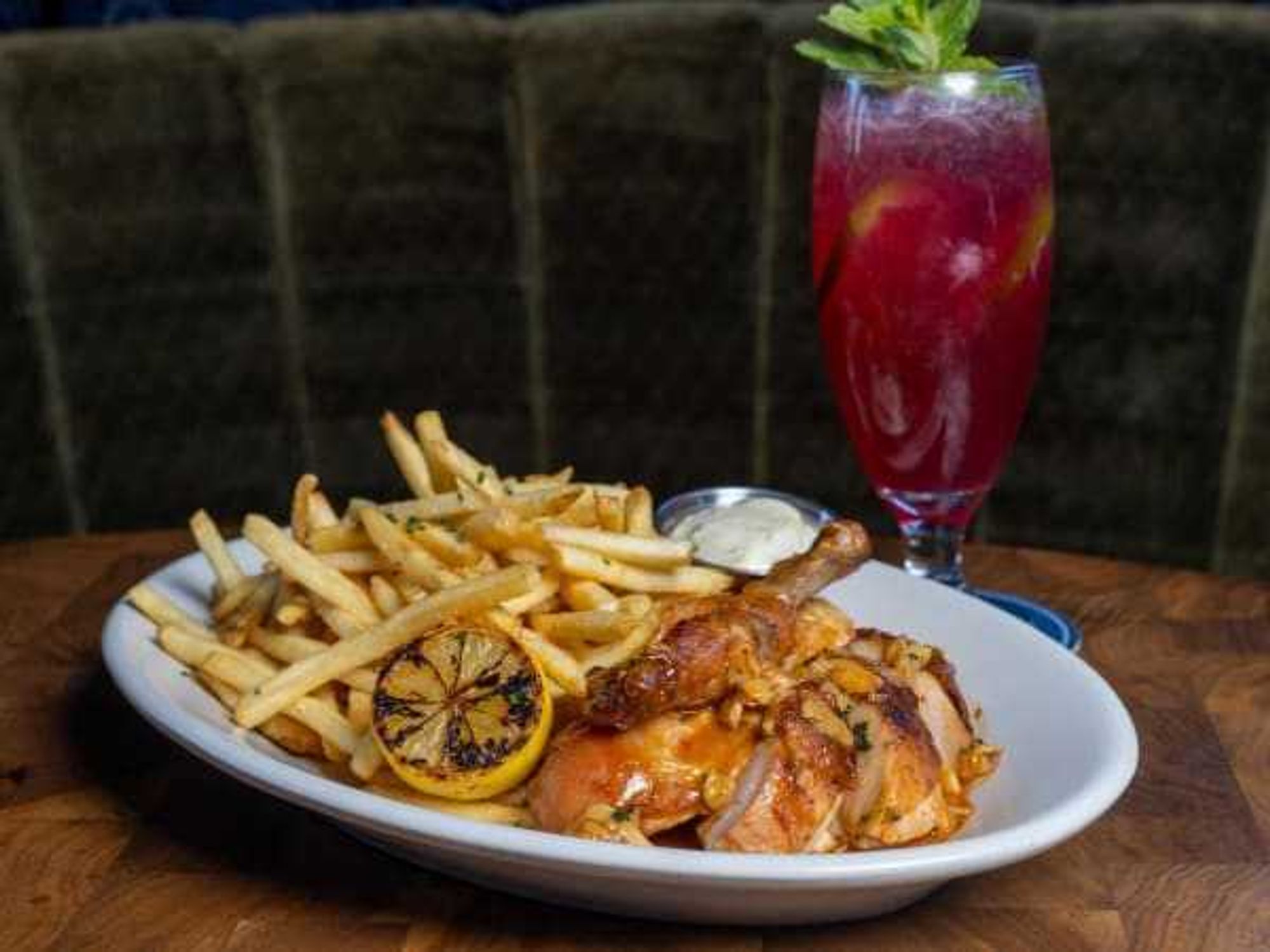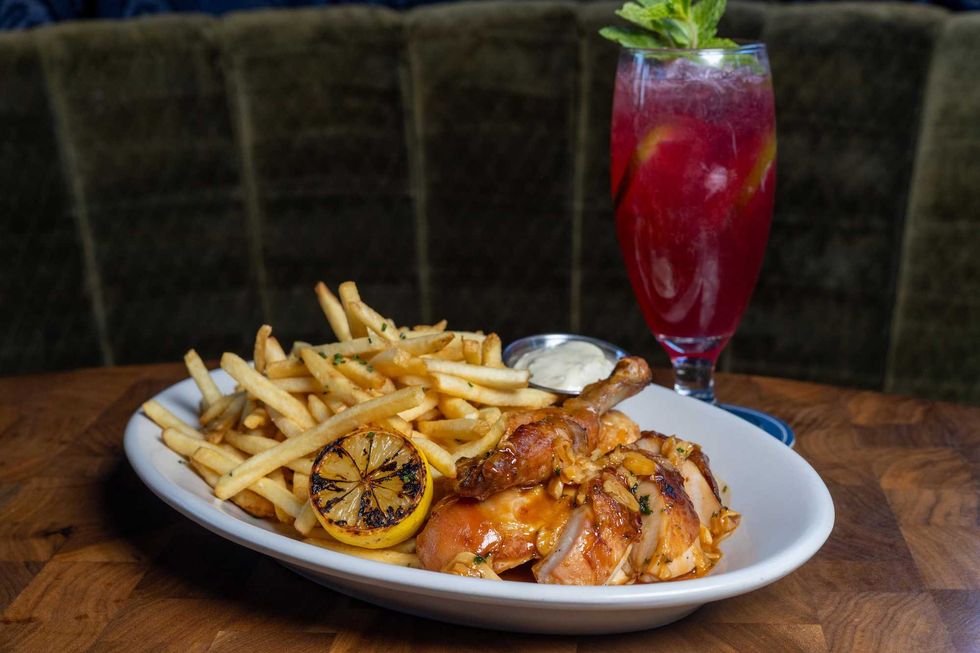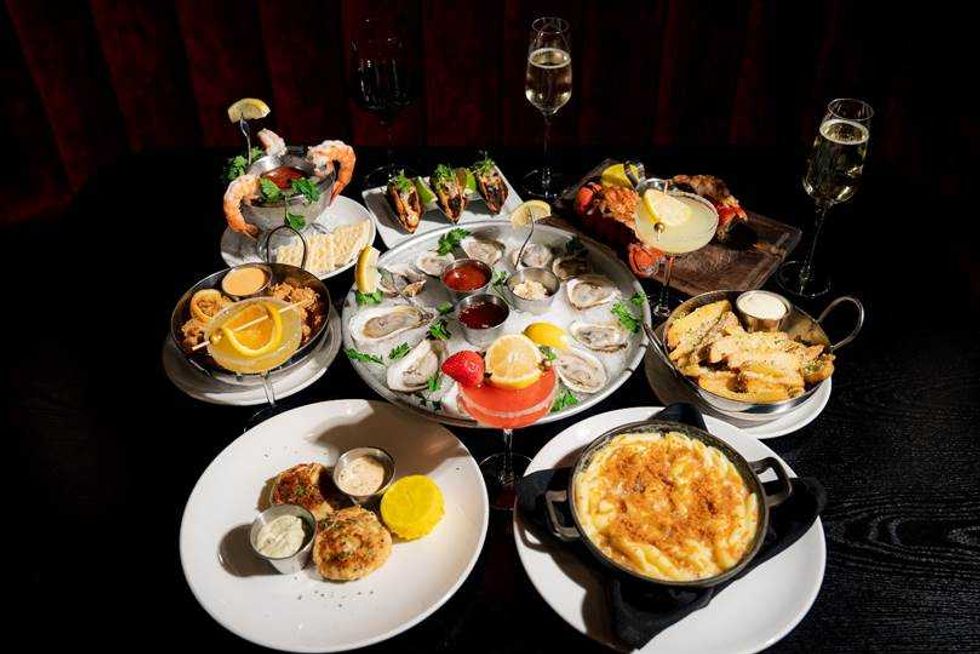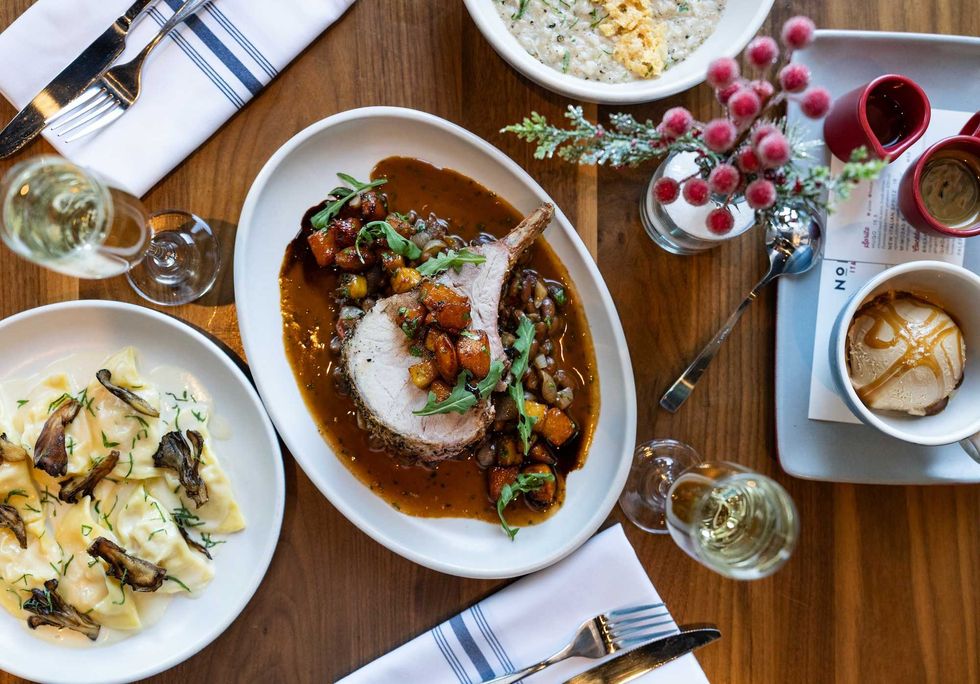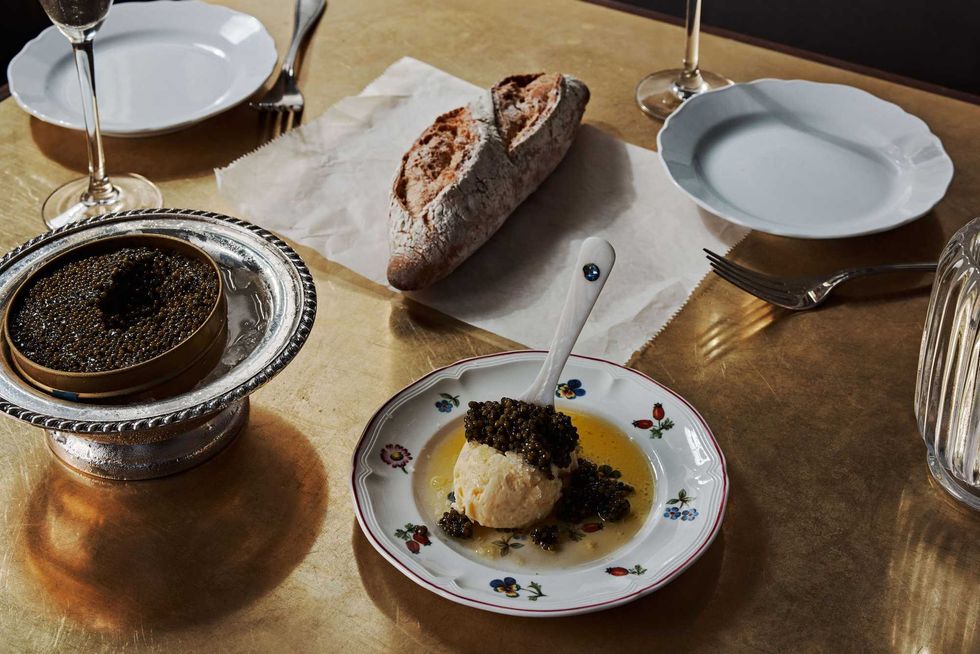Five Questions
Legendary chef Jacques Pépin on Julia Child, molecular gastronomy and why it'simportant to learn about food
How does one even begin to describe the food legacy of Jacques Pépin? This is a chef so prolific that his most recent cookbook, titled Essential Pepin, featured more than 700 recipes from his six-decade career. You know, just the essentials.
Born in Bourg-en-Bresse, France, Pépin was an apprentice in a professional kitchen by the age of 13 and served as the personal chef for three heads of state — including French President Charles de Gaulle — before moving to the United States in 1959.
In America, Pépin was director of research and new development for Howard Johnson for ten years, and has become one of the foremost authorities on French cuisine and beyond, hosting over 300 episodes of cooking shows on PBS (including an award-winning collaboration with longtime friend Julia Child), penning 21 cookbooks, teaching at the French Culinary Institute and Boston University. In 2004 Pépin was awarded the French Legion of Honor, the highest civilian honor.
Before his appearance in Houston at the Metropolitan Cooking & Entertaining Show on Sept. 15-16, Pépin talked to CultureMap about Julia Child, why we should study food and how American cuisine has changed in the past 60 years.
CultureMap: You've hosted over 300 cooking shows. How is a live cooking demonstration different?
Jacques Pépin: It's fun! The cooking demo is easier than television or anything, especially when I'm with my daughter, so we just have a ball. We have the ingredients and equipment set up about 10 minutes before and then go on. There is no limit of time like TV, so it's fun. The only problem is that not everybody can taste the food, although I do have about 20-30 people come onstage and taste the food.
CM: You wrote in The New York Times about reading Julia Child's Mastering the Art of French Cooking before it was published. Did you have any idea you would become friends and work together? How did she influence you and how do you think you influenced her?
JP: Not really, in life sometimes small things happen and they are pretty serious, just things happen here and here and eventually it's 20 years. It's not just like a big thing. When I met Julia she had never written a book, never been a food editor for a magazine or a television show, she was quite unknown. We did speak a lot about the stuff in French because she had just come back from there, so it was very comfortable and we ended up being friends for decades.
Molecular cooking, it's not the kind of cuisine you eat every day. But if you take Jean Paul Gaultier and look at what's on the runway, there's a woman in this over-the-top costume. You think, 'Geez, who's going to wear that?' but it trickles down to prêt-à-porter in a year or two. In the same way molecular gastronomy, it becomes part o f the food culture.
With influence, it's more of a question of style. Your friends, whoever you cook with, influence you. She would tell me not to be as intense on television, to let people looking at you breathe and not be so serious about teaching.
CM: You and Julia were instrumental in creating the Master of Liberal Arts in Gastronomy at Boston University. Why do you think it's important to study food and cuisine as an academic discipline?
JP: You eat a couple hours after you're born and you eat a couple hours before you die, so it's an ongoing proposition. It's studied as anthropology, sociology, in social science it's become very important. We are used to studying history through a big cataclysm — World War I, World War II — when in fact you get a lot closer to people by seeing what they did every day, what they ate in minute detail, it's a much closer look at what actually happened.
CM: Do you think Americans have become more French in their eating habits, and is that a good thing?
JP: We have become more American! There's been an enormous explosion in the food world since I came to America. Now I can give classes and they are 80 percent men and 20 percent women, and in the professional world of cooking, at the French Culinary Institute in New York it might be 80 percent women, so it's a crisscrossing. When I came here there was just one salad in the supermarket. Look at the supermarket now, it's beautiful. Today, there's interest in wine, making cheese, wild ingredients...
CM: When you look back at your Howard Johnson days, what about the food or style of that era do you miss?
JP: The fried clams, they were good.
CM: What is your favorite type of cuisine?
JP: I don't really have a favorite. In Essential Pepin, there're some quintessential French recipes but there is also on page 32 a black bean soup with a sliced banana on top, there's ceviche which did not exist in France when I was a kid. So I have some French recipes in it but it's about my journey in the last half a century.
CM: So much of what you do is about making great food simple, or simpler, and cooking at home. What do you think of places like El Bulli and wd-50 that combine the kitchen with a science workshop?
JP: This is the beauty of what we do, the variety. I was at the Food & Wine Festival in Aspen and someone told me there are 407 shows on cookery on television. I don't know if it's accurate but the variety is enormous and it's fine, that brings people in.
Molecular cooking, it's not the kind of cuisine you eat every day. They are pushing the envelope with a lot of dehydration, sous vide, nitrogen gas — in that sense this is not the way you're going to eat every day. But if you take Jean Paul Gaultier, a very well-known French designer and look at what's on the runway, there's a woman in this over-the-top costume. You think, 'Geez, who's going to wear that?' but it trickles down to prêt-à-porter in a year or two. In the same way molecular gastronomy, like nouvelle cuisine before it, it becomes part of the food culture.
CM: Tell me about why you are interested in the Metropolitan Cooking & Entertaining Show. What does an event this size say about food culture today?
JP: It brings a lot of people that I don't know together. It's a good opportunity to meet people. I get to cook with my daughter, so that's fun and it's an opportunity to go to Houston. I used to do some cooking classes there but I haven't been in a while.
CM: Is there anything you are looking forward to eating while you're here?
JP: I think some Tex-Mex.
